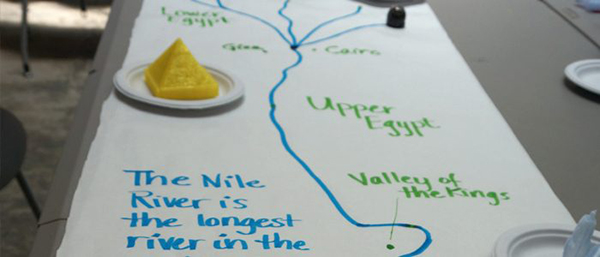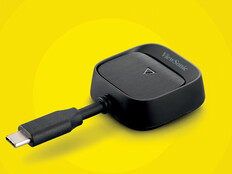STEAM-Focused 3D-Printing Projects to Try in Your Classroom
The rise of the Maker movement brought about a renewed focus on design and creativity, and thanks to MakerBot, it has also inspired new ways of teaching old subjects.
As part of the MakerBot STEAM Makeathon — STEAM adds “the arts” (A) to the science, technology, engineering and math STEM alliance — the company called upon educators to reimagine one of their everyday lessons using 3D-printing technology. The competitions took place in New York City, Chicago, San Francisco, Denver and DC earlier this summer.
Here’s a quick look at three of the projects that won first place. You can find the full lesson plans for free on Thingiverse.com.
Elevator of Terror
Created by a team named States of Confusion, the Elevator of Terror project offers a new take on a traditional pulley challenge.
“Students must rely on measurement and modeling skills to determine the correlation between size and ratio for the gears,” states a MakerBot blog post announcing the winners of the DC competition.
Source: States of Confusion via Thingiverse
Objective: Teaching students to create a gear train and calculate the appropriate gearing ratio
Audience: Grades 10–12
Subjects: Science, Math and Engineering
Standard: Measurement, data and probability (CC.2.4)
Sphero Water Wars
Team H2 Make It gO created the Sphero Water Wars project around an existing 3D model that attaches to the Sphero robotic ball.
A MakerBot blog post naming the Chicago winners states that “students must create a vehicle that attaches to the Sphero hat model. The vehicle must transport 100 mL of water through the course, save as much water as possible and reach the finish line in the least amount of time.”
Source: H2 Make It gO via Thingiverse
Objective: Helping students understand volume and elements of design
Audience: Grades 4–12
Subjects: Science and Math
Standards: Measurement and Data (4.MD-2 and 5.MD-3)
A Walk Through Time: Ancient Civilizations
ArchaeoDesign Team’s project, titled A Walk Through Time: Ancient Civilizations, brings history to life by “sending students on a journey through Ancient Egypt to explore and uncover artifacts along the Nile River,” states a MakerBot blog post about the San Francisco competition. “A coded Ozobot guides the students along the Nile River while they journal about their findings.”

Objective: Teach students to analyze primary and secondary sources and use 3D imaging technology
Audience: Grade 6
Subject: History
Standard: Students analyze Mesopotamia, Egypt, and Kush (6.2 SS)









